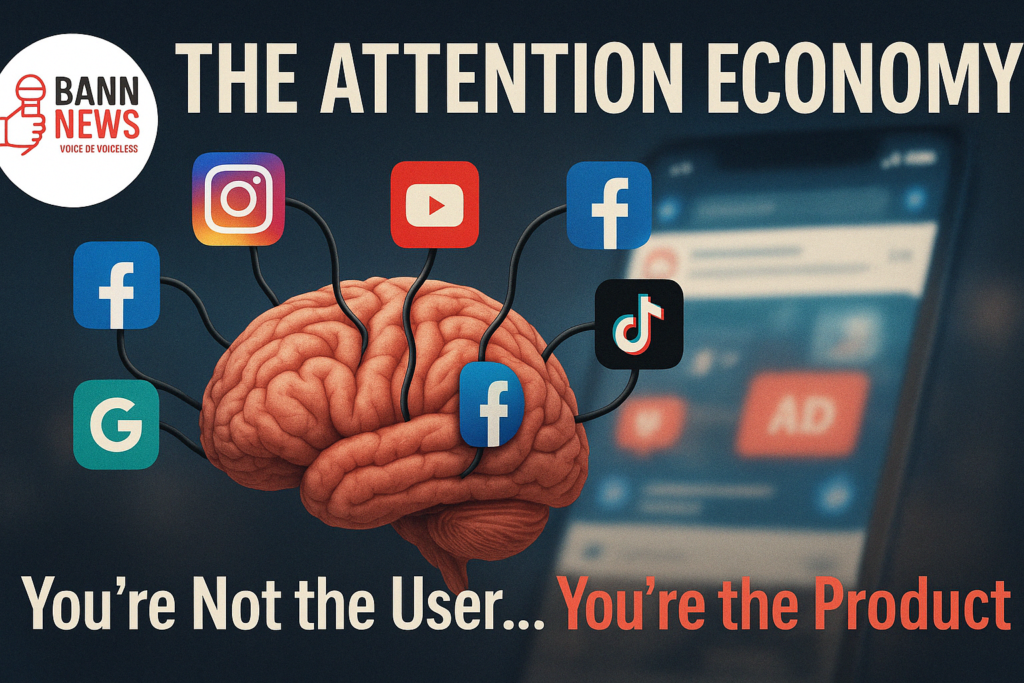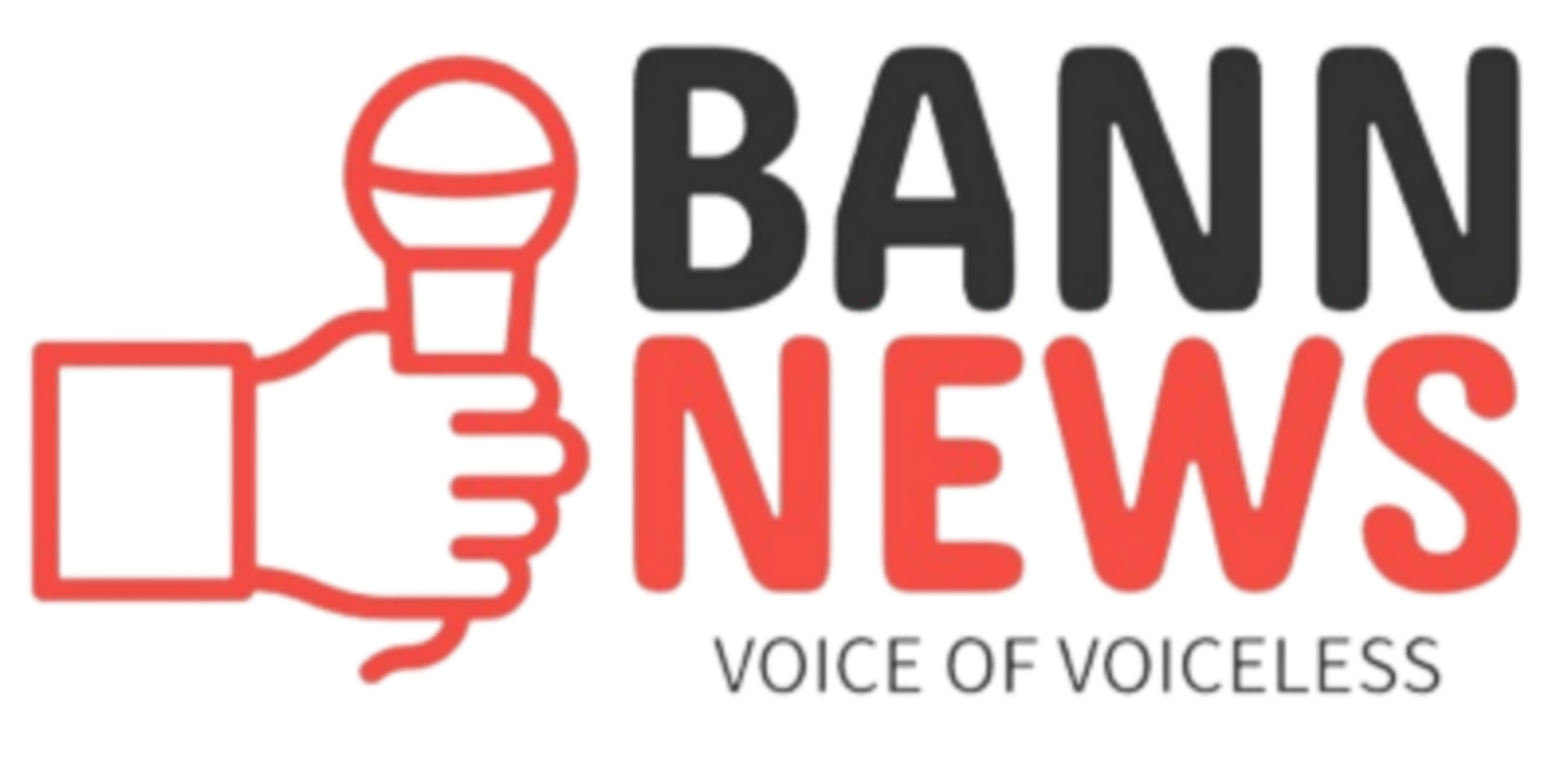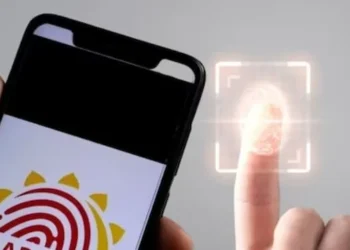
Srinagar , 15; April (BANN) :Imagine this: you open your phone just to check one notification and suddenly, two hours disappear. You’ve scrolled through memes, watched a viral video, read a dramatic news headline and maybe even jumped into a debate in the comments. What just happened? Well, you paid with your most valuable asset—your attention.
In today’s world, attention is the most sought-after currency. Social media platforms, streaming services, influencers, brands and even news outlets are all competing for your focus. The more time you spend engaging with their content, the more they benefit. Your likes, shares and watch time aren’t just casual actions—they are data points that fuel a billion-dollar industry.
Welcome to the attention economy.Everything on the internet is designed to keep you hooked. Have you noticed how social media platforms suggest videos you can’t resist? Or how one reel turns into ten and suddenly, it’s midnight? That’s not an accident—it’s a system built to capture and hold your attention. Features like autoplay, infinite scrolling and personalized recommendations ensure that you stay on the app longer, because the longer you stay, the more money these platforms make.
You are not just a user; you are the product.One of the biggest effects of the attention economy is shorter attention spans. Remember when a 10-minute YouTube video felt normal? Now, even a 60-second reel feels long. Our brains have adapted to crave quick, engaging content, making it harder to focus on books, deep conversations or even real-life experiences.
This constant stimulation makes everything else seem boring.Another major impact is doomscrolling—the habit of endlessly consuming negative news and shocking content. Social media thrives on strong emotions and content that makes people angry, shocked or fearful gets more engagement. That’s why controversy, drama and tragic news always seem to dominate your feed.
This can lead to stress, anxiety and an overwhelming feeling that the world is falling apart.The attention economy also fuels FOMO (Fear of Missing Out). Seeing influencers living “perfect” lives online can make you feel like you’re falling behind. The constant exposure to curated, picture-perfect content leads to comparison, insecurity and unrealistic expectations. What we forget is that social media is a highlight reel—not reality.The good news? You can take back control of your attention. The attention economy only works if you let it. Start by being intentional with your time online. Before opening social media, ask yourself, “Why am i here?” Is it to learn, connect or just pass time? Being aware helps you avoid mindless scrolling.Use app timers to limit your screen time.
Most phones have built-in screen time limits—set a daily cap for social media apps to avoid endless scrolling. Unfollow accounts that make you feel anxious or insecure and prioritize real-life connections over virtual ones. Try a 24-hour digital detox once in a while—you’ll be surprised how much clearer your mind feels.Technology isn’t bad—it’s an incredible tool that connects, educates, and entertains us. But in the attention economy, you are the product and companies will do whatever it takes to keep you engaged.
The key is to use technology wisely instead of letting it use you.So next time you find yourself caught in an endless scroll, pause and ask yourself—who is benefiting from my time right now? If the answer isn’t you, maybe it’s time to log off and reclaim your attention._BANN




















